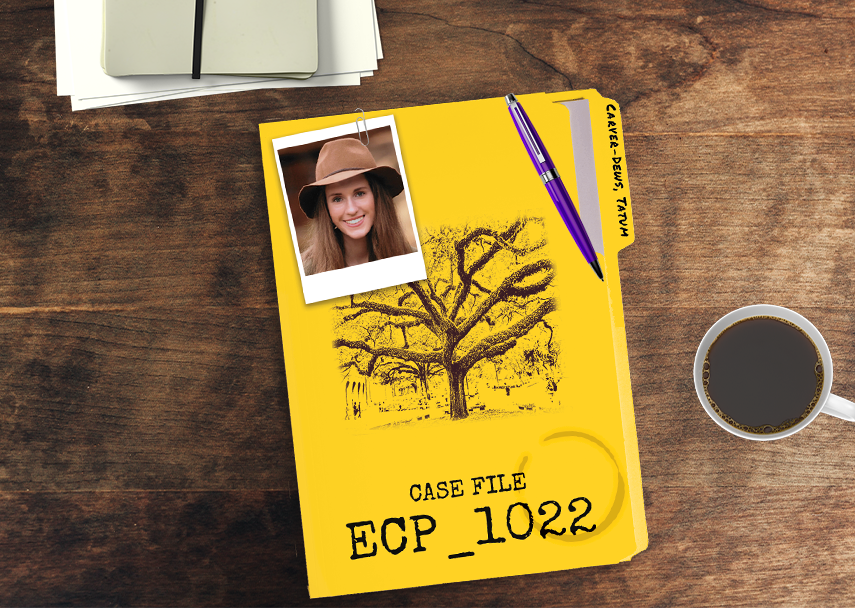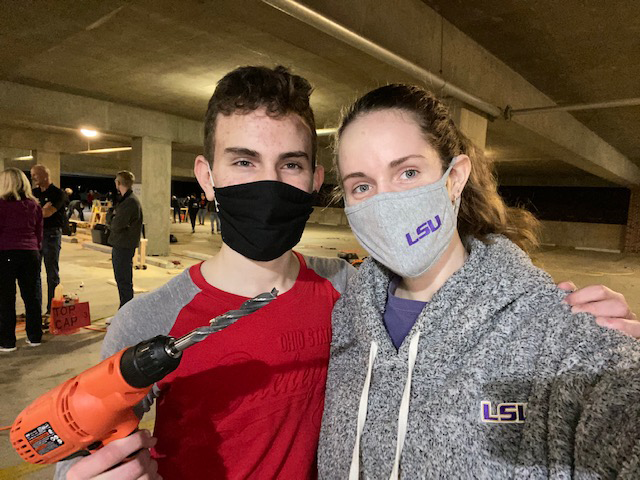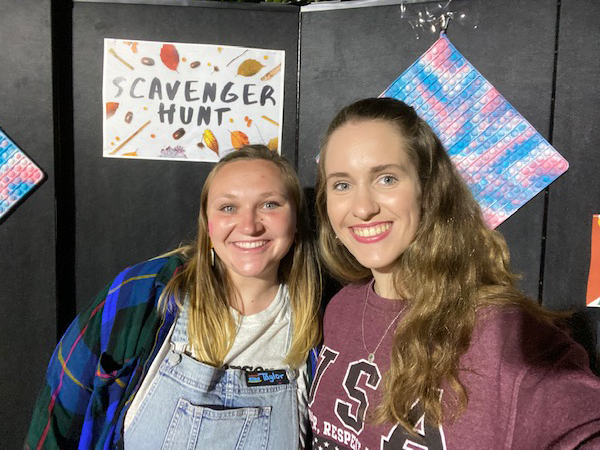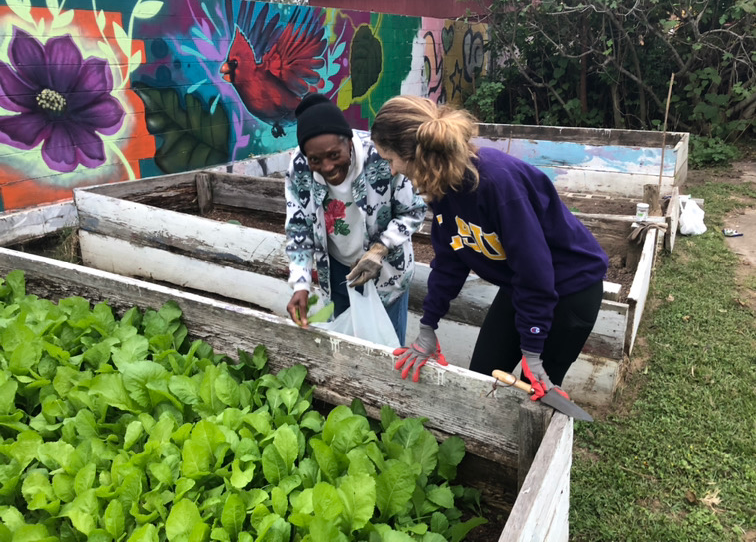ECP Service Dossier Spotlight Series:
Tatum Carver-Dews, Fall 2022

CCELL: In your own words, what is an Engaged Citizen?
Tatum: I’d say an Engaged Citizen is someone who’s willing to put others before themselves, which is a very simple definition, but I feel like in service you have to put others before yourself.

Carver-Dews and her brother pictured at the “Grace EmBEDded” event, where community members work to provide beds for next of kin foster placements in the Greater Smith County Area of East Texas. This family event occurs annually on the day before Thanksgiving. Photo Submitted by: Tatum Carver-Dews
C: How did you get started working with the Engaged Citizens Program?
T: In my HSS 1000 (Introduction to Research), which was right downstairs in North Hall, we had different guest speakers come in. I think it was [former CCELL Program Coordinator] Grace Moody that just kind of came in and gave a presentation on the Engaged Citizens Program. I remember thinking, “Well, I want to be involved in that.” So, that worked out pretty well for me!
C: How did you first get involved with volunteering and service?

Carver-Dews poses for a selfie at the Fall Fest event held by Jefferson Baptist Church. Carver-Dews worked with the children’s ministry booth for kindergartners to 5th graders to provide a safe and fun Halloween scavenger hunt.Photo Submitted by: Tatum Carver-Dews
T: I am pretty actively involved in my church right now. I currently go to Jefferson Baptist. [Service] was a key part of my upbringing. When I found the opportunity to have service embedded in my classwork, I thought it sounded perfect because it’s something I already enjoy doing. I am also a pretty involved person. [Volunteering] was a really easy way to connect with the community, obviously, but also a great way to connect to other classmates because you are all serving together.
C: What do you enjoy most about volunteering?
T: Honestly, my favorite part is how appreciative people are afterward. Obviously, you don’t have to have a reward after but [what I enjoy most] is how you can usually tell on someone’s face that the service helped them. When we did the garden cleanup it was cool to see the service mean so much to the woman who was head of the garden. We were just breaking down a bench, but it meant so much to her and it was cool to see how little things can make someone’s day better. You don’t have to have a reward but [this feeling] is nice. The little things.
C: How did COVID-19 impact your service and did you have to adjust your service in the community because of COVID-19?
T: It was definitely a little harder when we had the courses that were designated service-learning [to complete]. For example, I took EMS 2011 (Analysis of Environmental Issues), and we served with the Big Buddy Program. Typically, you go into the school and teach students with more hands-on activities. But instead, we were teaching through Zoom. We were still able to [make it] work, and we would just have to adjust the different activities.
C: What have you learned about the community that you serve, as they responded to the COVID-19 pandemic?
T: [I learned about] the willingness of people to serve. I think that it was very easy to watch the news and become discouraged with humanity as you continue to see bad things that happen every day. But then, when you see something like COVID happen, you can see that humanity will step up to the plate when necessary and serve. When I volunteered at the food bank [during this time], they talked about how much they were able to amp up their production to meet the needs of the community.

Carver-Dews worked alongside a local resident at the Community Garden on Washington Street in Baton Rouge. While there, Carver-Dews and other Engaged Citizens cleared out a dangerous picnic table and weeds.Photo Submitted by: Tatum Carver-Dews
C: Why did you choose to take service-learning classes—since your communication sciences
&
disorders curriculum does not require it?
T: As I mentioned, I love service but I am also very much a nerd. I do homework into the very late hours of the night, and it can be hard to step back sometimes and think, “Okay, why am I doing this?” So it helps when there’s a different type of reward, and I can step out of the “nerd mindset” and see that the bigger purpose of this work is to help people in my community. Then it becomes more than just a lecture and more than just assignments.
C: What did you enjoy about your service-learning experience?
T: [What I enjoyed most was] the fact that with none of the service-learning experiences are the same. For example, I did oral history transcription for AAAS 2000 (Introduction to African & African American Studies), but then I was teaching the difference between climate and weather to third graders in EMS 2011. Now, I am going to teach reading in COMD 7384 (Early Communicative Intervention). The variety that you can choose with your [service-learning courses] is really cool.
C: Do you think you will continue to implement service learning and volunteering in the future?
T: I, for sure, will continue to commit to service. I want to be a speech pathologist, and one of the reasons why I chose that career was so I can help others and so I can continue to implement service.
C: What would you say to incoming LSU students to inspire them to participate in service learning?
T: I would probably tell them two different things. One is that it’s worth it. It is worth putting in the effort. Two, I would tell them to get involved as soon as possible. I think that it can be really intimidating, especially for freshmen, to see all these different programs and all these different options to make a course more intensive. But [service-learning] is very, very much worthwhile.